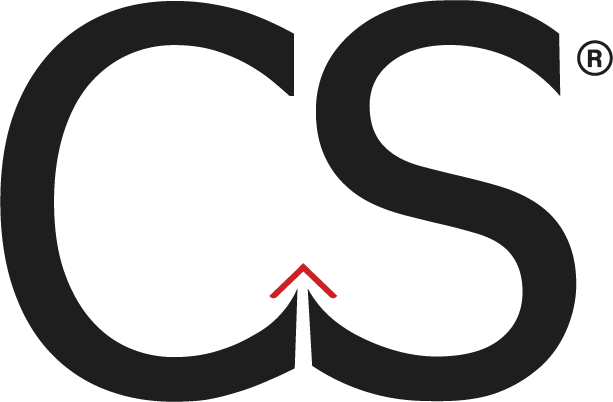Still, fundamentally, both offer web-based repositories with open-source, Git-based code management and local file changes with a remote repository. So, if all you want is basic Git functionality but with someone else to worry over keeping Git up and running, either service will do well for you. GitHub is an incredible platform for amateurs, particularly in case you are searching for an intuitive platform to host your ventures.
Certain software does not have the ability to retain information when it’s undergoing maintenance. GitLab’s maintenance mode allows you to edit code without jeopardizing the project you’re working on. Our expert provides a rundown of their respective features to help you decide which one best meets your needs. One main thing in GitLab vs GitHub comparison is the CI/CD (Continuous Integration and Deployment) feature. GitLab CI/CD is a part of GitLab, which enables developers to test, deploy, and monitor their applications easily without any external tools. While GitHub is still the default choice for new developers, that’s slowly changing as GitLab develops into a specialized platform with unique features and benefits.
When to Choose GitLab
GitHub tends to be more affordable, with its premium plans starting at a lower price compared to GitLab’s premium offerings. Let’s break down their pricing strategies to help you decide which one fits your needs best. GitHub has Copilot integrated into it, which is using OpenAI’s GPT under the hood. GitLab Duo is GitLab’s AI offering, which uses a variety of models, including Anthropic’s Claude, Google’s Vertex, and Fireworks AI’s Qwen2.5. GitLab’s runners typically run inside Docker containers, so in this example there’s no need to install Node.js, as that’s already baked into the Docker image.
I tried Google’s new agentic IDE, and it blows away the popular VS Code – here’s how
But in terms of features, pricing, and its inbuilt DevOps tools, they differ quite significantly. The battle between GitLab and GitHub revolves around code management, collaboration, and development workflows. While both platforms offer Git repository hosting, their feature sets, pricing models, and philosophies diverge in ways that can significantly impact productivity, security, and overall project success. It leverages the capabilities of Git while offering a more user-friendly experience. Initially, GitLab was a cloud-based repository, but it has since evolved to include numerous security features and integrations. Today, GitLab provides both free SaaS plans and premium cloud-based plans, catering to a wide range of users.
- Both GitHub and GitLab are the two most popular and widely adopted repository hosting service used to efficiently manage software development workflow.
- GitHub has Copilot integrated into it, which is using OpenAI’s GPT under the hood.
- This is one of the main reasons Git was created, as a way for developers all over the world to work together on the same project without tripping over each other’s changes.
Will switching from GitHub to GitLab negatively affect the developer experience or community features?
It’ s a simple yet modern, fully featured Git server used by larger organizations such as Sony, IBM, Alibaba, NASA, O’Reilly Media, SpaceX, CERN, and more. It’s the most efficient way to maintain Git repositories on a centralized server allowing users complete access and control over their Git repositories. It’s a lot similar to GitHub but with additional features such as easy import from other popular Git repositories like GitHub, Google Code, Bitbucket, etc. Both GitHub and GitLab are the two most popular and widely adopted repository hosting service used to efficiently manage software development workflow.
Why Git Matters for Every Developer
The interface of GitHub is very user-friendly, making it easy for amateur coders to take advantage of Git. Without GitHub, using Git generally requires users to be a bit more technical savvy and it involves usage of familiarity with command line tools to operate it. GitHub has a sponsorship program enabling funders to discover open-source projects that they are enthusiastic about and can contribute to the individual or association behind it. Learn about the importance of version control in web development and master project source code management with this comprehensive guide. GitHub and GitLab are robust version control and code management platforms that cater to different needs and use cases. Regarding ecosystems, GitHub has a massive and active developer community, with millions of open-source projects hosted on the platform.
GitHub’s developer teams also contribute to open source projects—specifically Git LFS and other Git-related ones. But you have to remember that through these third-party integrations, GitHub offers some of the out-of-the-box features from GitLab. While you can set up a CI/CD workflow with GitHub, you need to work with a third-party CI tool like TravisCI or CircleCI. You don’t have the same platform of CI features that interact directly with your GitHub repository. While this means you can’t move your WordPress site directly to GitHub or GitLab, you can still have version control in WordPress if you’ve got the proper setup. In GitHub, you can also categorize issues, pull requests, and notes into specific projects.
GitHub focuses on speed and simplicity, while GitLab emphasizes a comprehensive, all-in-one experience. Despite its many advantages, GitLab does have some drawbacks, such as a slower interface and frequent bugs. However, its comprehensive feature set and flexibility make it a strong contender in the version control software market. GitLab was the first to make DevOps a core feature, and GitLab CI/CD has been fully integrated for many years.
Explore our Popular Software Engineering Courses
- But cloud-based Git repositories like GitHub and GitLab go beyond the basic Git functionality.
- GitHub lets you work with the CI/CD tools of your choice, but you’ll need to integrate them yourself.
- Regardless of the project’s size or complexity, Git is an indispensable tool.
- Recently, restrictions on private repositories were lifted, so you can now create unlimited projects that are visible only to selected users.
- Here’s how the two stack up, along with their free, premium, and ultimate plans.
It can be used both for small projects consisting only of a few lines of code to very large projects such as the Linux kernel project which has over 27 million lines of code and over 1 million commits. At any time a developer can look back through the history of the changes to figure out when something was changed, why it was changed, or to revert to a previous version. Any reasonable person would agree that most code on the planet lives on either GitLab or GitHub.
That said, you still have the option to host a private version of GitLab on your virtual machines. That’s the gist of the difference between the two cloud repository platforms. GitLab CI tools let you build, stage, and deploy code automatically without relying on manual updates or clunky, custom-built integrations. This section will cover the main discrepancies between the two platforms. These latter features are high on any enterprise priority list, but small teams and freelancers won’t miss them. But when it comes to the recommended workflow using these features, they’re pretty different.
Using both allows you to take advantage of GitHub’s network and GitLab’s infrastructure, but it requires keeping workflows in sync and some additional management. GitLab CI/CD is powerful, giving you more control over your runners and pipelines. While GitHub Actions offers excellent community support and ease of setup, GitLab provides more advanced configuration options.
Github is also the first choice of larger teams that depend on crystal-clear team communication. That’s because Github delivers fantastic collaboration tools in order to make your team communication efficient so that you guys can develop faster and produce quality code. This book is intended for both novice and advanced Git learners who need a hands-on guide for project management and version control. It is useful for those looking difference between github and gitlab for basic information and also anyone who wants more in-depth, practical knowledge. Teams provide a way to group people and control access to repositories collectively. GitHub offers different levels of access permissions, including read, write, and admin.
Both come in handy for a large community of developers especially when working in teams, but they are quite distinct on many fronts. For one, GitHub is not open-source whereas GitLab Community Edition is free and open sourced. In addition, GitLab has its very own continuous integration and continuous delivery already built-in so that users don’t have to install it separately. GitHub, on the other hand, offers third-party integrations for CI/CD work.


